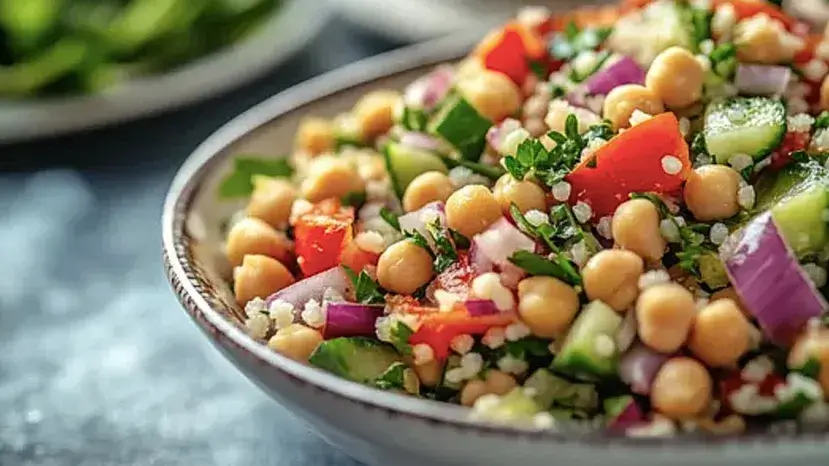How the Mediterranean Diet Helps Reverse Fatty Liver

Rediscovering Wellness Through Simple, Flavorful Choices
One afternoon, after advising a patient on dietary changes for liver health, I watched him light up with relief and excitement. He had found “diets” difficult, especially when they focused on restriction rather than sustainable choices. As I introduced him to how the mediterranean diet helps reverse fatty liver, he seemed relieved. The Mediterranean diet, rooted in whole foods, natural fats, and abundant flavors, provides an approach that’s enjoyable and scientifically supported.
Understanding Fatty Liver and Diet Impact
Fatty liver disease—often the result of poor lifestyle habits and an excess of processed foods—leads to fat accumulation in liver cells. While some level of fat in the liver is normal, too much fat can interfere with essential liver functions. Left untreated, fatty liver can lead to inflammation, liver scarring, and potentially cirrhosis. For many patients, knowing that diet can reverse or even prevent fatty liver is a relief. The big question, then, is how the Mediterranean diet helps reverse fatty liver, targeting not just symptoms but the underlying causes of liver fat accumulation.
What is the Mediterranean Diet?
The Mediterranean diet, originally inspired by the eating habits of populations around the Mediterranean Sea, emphasizes natural, nutrient-rich foods. Unlike strict, restrictive diets, the Mediterranean diet includes:
- Healthy fats: Olive oil, nuts, and seeds
- Lean proteins: Fish, poultry, and legumes
- Fiber-rich vegetables and fruits
- Whole grains and legumes
Such foods provide essential nutrients that actively work to combat liver fat accumulation. In contrast to high-sugar and processed-fat diets, the Mediterranean approach offers benefits that are both restorative and preventive.
Nutrient Balance: A Pathway to Liver Health
One of the primary ways the Mediterranean diet helps reverse fatty liver is through its balanced nutrients. By including a variety of unprocessed foods and reducing refined sugars, this diet reduces oxidative stress in liver cells. Fatty liver disease often coincides with insulin resistance, which results in excess glucose being converted to fat within the liver. The Mediterranean diet, with its low glycemic load, works to combat insulin resistance, preventing further fat buildup.
For example, replacing refined grains with whole grains ensures a steady blood glucose level, which minimizes liver fat production. This strategy, along with the anti-inflammatory effects of healthy fats, collectively aids the liver in reducing excess fat.
How the Mediterranean Diet Helps Reverse Fatty Liver
Rich in Fiber and Antioxidants
Fiber plays a crucial role in liver health. Many Mediterranean foods—like legumes, vegetables, and whole grains—are fiber-rich, which helps reduce the liver’s fat load. By lowering overall blood sugar and triglyceride levels, these foods prevent fat accumulation in the liver. Additionally, antioxidants found in fruits and vegetables combat free radicals, which can damage liver cells and worsen fatty liver.
Foods like berries, citrus, and dark leafy greens offer antioxidants that strengthen liver resilience. By replacing sugar-laden snacks with antioxidant-rich foods, patients can actively reduce liver stress.
Anti-Inflammatory Fats Support Liver Health
While many people are accustomed to avoiding fats altogether, the Mediterranean diet includes healthy fats that can actually support liver health. Olive oil, in particular, has monounsaturated fats that reduce liver inflammation. Omega-3 fatty acids, present in fish like salmon and sardines, have anti-inflammatory effects that benefit the liver. Reducing inflammation is one of the ways the Mediterranean diet helps reverse fatty liver, allowing the liver to repair itself and operate more efficiently.
In addition, these healthy fats create a sensation of fullness and reduce cravings for sugary, processed foods. By reducing dependence on processed snacks, patients can prevent further fat buildup in the liver, setting the stage for long-term liver health.
A Balanced Approach: Protein, Grains, and Vegetables
The Mediterranean diet encourages a balance of lean proteins, whole grains, and vegetables that keeps the liver functioning smoothly. Lean proteins like fish and legumes provide essential amino acids without overloading the liver with fats. Vegetables and whole grains provide necessary fiber and a range of vitamins that boost liver health. Together, these foods create a holistic approach that not only nourishes but also supports liver regeneration.
Lifestyle Habits that Complement the Mediterranean Diet
While food is a powerful tool, the Mediterranean lifestyle includes activities that further aid liver health. Physical activity, an essential component, helps to burn excess fats in the liver. Regular exercise—whether a brisk walk, swim, or bike ride—activates metabolic processes that use stored fats for energy, reducing liver fat accumulation.
The Mediterranean diet, combined with such lifestyle changes, offers an approach that addresses both dietary and behavioral factors contributing to fatty liver.
Evidence-Based Benefits of the Mediterranean Diet for Liver Health
Scientific studies consistently show that the Mediterranean diet improves liver health in individuals with fatty liver. According to research, adherence to this diet reduces liver fat and liver inflammation, helping reverse fatty liver symptoms. Patients following a Mediterranean diet often experience better liver enzyme levels, an indicator of improved liver function. One study found that participants adhering to the Mediterranean diet had lower ALT levels, a marker of liver injury, compared to those on standard diets.
Getting Started with the Mediterranean Diet
For those starting out, gradual shifts are key. Begin by incorporating olive oil in place of processed fats, adding more vegetables to meals, and replacing processed grains with whole grains. Adding more lean protein like fish and legumes also aids the transition. The Mediterranean diet’s flexibility allows patients to make these changes without drastic adjustments, making it sustainable and enjoyable.
Closing Thoughts on Mediterranean Diet and Fatty Liver
How the Mediterranean diet helps reverse fatty liver isn’t just about what foods are consumed but also about what’s left out—excess sugars, processed foods, and unhealthy fats that can accelerate liver fat accumulation. Through a commitment to nutrient-dense, anti-inflammatory foods, patients can take control of their liver health. With consistent, mindful dietary choices, the liver can heal, rebuild, and continue to support the body’s overall wellness.
Share this article

Dr. Nikko Theodore Raymundo, MD
Dr. Nikko Raymundo is a specialist in Internal Medicine and Gastroenterology, based in Metro Manila. See Full Bio.
-
1. Ryan MC, Itsiopoulos C, Thodis T, Ward G, Trost N, Hofferberth S, O’Dea K, Desmond PV, Johnson NA, Wilson AM. The Mediterranean diet improves hepatic steatosis and insulin sensitivity in individuals with non-alcoholic fatty liver disease. J Hepatol. 2013.
-
2. Kontogianni MD, Tileli N, Margariti A, Georgoulis M, Deutsch M, Tiniakos D, Fragopoulou E, Zafiropoulou R, Manios Y, Papatheodoridis G. Adherence to the Mediterranean diet is associated with the severity of non-alcoholic fatty liver disease. Clinical Nutrition. 2013.
-
3. Pérez-Guisado J, Muñoz-Serrano A. The effect of the Spanish Ketogenic Mediterranean Diet on nonalcoholic fatty liver disease: a pilot study. J Med Food. 2011.
-
4. Godos J, Federico A, Dallio M, Scazzina F. Mediterranean diet and nonalcoholic fatty liver disease: molecular mechanisms of protection. Int J Food Sci Nutr. 2017.
-
5. Misciagna G, Del Pilar Díaz M, Caramia DV, Bonfiglio C, Franco I, Noviello MR, Chiloiro M, Abbrescia DI, Mirizzi A, Tanzi M, et al. Effect of a Low Glycemic Index Mediterranean Diet on Non-Alcoholic Fatty Liver Disease. A Randomized Controlled Clinici Trial. J Nutr Health Aging. 2017. [DOI]
-
6. Abenavoli L, Greco M, Nazionale I, Peta V, Milic N, Accattato F, Foti D, Gulletta E, Luzza F. Effects of Mediterranean diet supplemented with silybin-vitamin E-phospholipid complex in overweight patients with non-alcoholic fatty liver disease. Expert Rev Gastroenterol Hepatol. 2015.
How a Low-Fat Diet Reduces Liver Fat I found myself counseling a patient who wasn't exactly thrilled at the idea of dietary changes to manage his...
Can Fiber Reduce Liver Fat Accumulation? A few years back, I had a patient—a self-proclaimed “meat and potatoes guy” who’d always sworn off...
Mediterranean Chickpea Salad In the midst of a hectic day at the clinic, I often find myself scrambling for a quick, nourishing meal that doesn’t weigh...

You might enjoy more articles by
Dr. Nikko Theodore Raymundo, MD
 Disease
Disease Diets
Diets Recipes
Recipes Supplements
Supplements Management
Management Calculators
Calculators Quizzes
Quizzes Glossary
Glossary

















